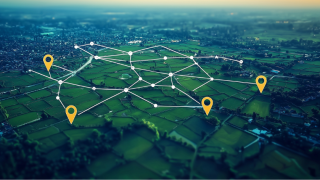At some point almost every consultant, executive and founder has opined on the future of work. From the dawn of the robots to the digital nomad, predictions on how to earn a crust in a connected world are not difficult to come by – particularly today. However, add diversity and digitalisation to that future, then put the question to Tecnotree CEO Padma Ravichander, and the response takes a fresh approach.
“There is definitely a need for more digitalisation across sectors to improve the customer experience online as well as offline. This means there will be a big-bang upsurge in both the use of digital technology and digital transformation of nations across enterprise customers and consumer segments, in every vertical industry,” she says.
This means “new social networks, partnerships, ecosystems and ways of working and living” will emerge over the next 10 years.
“The business models that we knew before will cease to exist, so we must understand that what we need to do is embrace emerging technologies and adapt to a much more automated and agile an approach of working. The more agile we are the more adaptive we will be to change in this new convergence that is coming post-Covid, with the higher bandwidth of 5G technology and cloud computing,” she continues.
Tecnotree is a digital BSS service provider to more than 90 operators in around 70 countries, with Ravichander disclosing its software touches “close to one billion subscribers now in emerging markets”.
“We have always believed in empowering women in technology and across our workforce we have equal work opportunities for men and women. We have strived to close the gender gap and create gender parity and gender equality,” she says, with the company proudly reporting management has female representation of 27%, while the core management board is 50% composed of women leaders.
It is a step change from the start of Ravichander’s career, when she was frequently the only woman in the room, whether it was a boardroom, meeting room or computer lab.
“For women in technology and in telecoms, that has already changed. There are a lot of very successful women role models who are extremely accomplished and who are contributing significantly to technology,” she says, and post-pandemic the scene is being set for there to be many more, not just in the field of technology.
Ravichander adds: “Work from home has enabled work-life balance, it does not matter where you are located globally in terms of how you contribute to your work. This aspect definitely gives a lot of women the opportunity to start working again.”
With the onset of 5G, AR, VR and cloud enablement, she says, “our ability to work from anywhere at any time is now a reality.”
“The new normal is one of online immersive experiences that are going to make the whole digital experience much more real,” Ravichander continues.
“Digital channels have the opportunity to give voice to underrepresented groups, and this lends itself to equal contributions to society from both men and women. So digital transformation, and diversity and inclusion, is a default for the future of work. I think corporations now won’t mind so much if it is a woman who has to work from home, just as a male works from home. I think that whole unconscious bias in our approach will ebb away in this process.”
The result, she says, will be a blurred digital gender identity with greater balance between the left and right brain and the feminine and masculine way of thinking and an increasingly androgenised workplace, “which means we will have a much richer work experience, with contributions coming from both men and women”.
She adds: “I am really excited about what is happening and what a positive influence that will have on our workplace.”
The digital marketplace
Making this a reality will require digital infrastructure and Tecnotree has taken an increasingly central role in developing and providing that since Ravichander joined in 2011.
She headed engineering and sales activities on her way to the corner office, arriving there in the first quarter of 2016 (see timeline). Recalling the experience, she says: “Tecnotree has totally changed from where it was. I became CEO during an economic difficulty and over the last couple of years we have grown from strength to strength, and that has enabled our brand of digital transformation.”
Those trying times saw Tecnotree teeter on the brink of bankruptcy and Ravichander’s 2016 appointment was one of the strategic measures implemented to strengthen the company after its debt restructuring.
Since then, however, “an internal transformation” has occurred, sweeping through customer, product and R&D, “and, of course, focusing on our people”.
“We took an inclusive, multi-pronged approach in terms of transforming the company into what it is today: one of the leading digital transformation service providers for CSPs, DSPs and even to adjacent industries,” says Ravichander. “We looked at operational efficiency through containment of costs, but we also had to think of where we wanted the company to be, let’s say five years down the road. I believe that we have materialised that journey.”
When Ravichander joined, the firm was “more of a solution and projects company”, and so its first evolution was to fully fledged product company. With that achieved in 2015, digital and cloud-based strategies were implemented in 2017 with the first solutions – completely open sourced – delivered to the first clients early the following year. Next up was to evolve the existing stack into a digital stack and pick up a few more major contracts.
“We are proud to say that we have brought the company back to black,” Ravichander says.
Over the full year, 2020 revenue increased by 12.4%, net income by 76% and the order intake grew by €14.7 million, a 40% leap year-on-year.
Referencing the Digital BSS Suite 5 and the micro-services architecture of the digital accelerator platform Tecnotree-Surge, Ravichander says the order uptake in 2021 “demonstrates the customer engagement these products are enjoying. Our entire digital suite is cloud native and 5G network ready”.
With CSPs now turning their attention to enterprise business growth post-pandemic, a zero-touch operating environment is rapidly becoming essential. “I truly believe this is the future being created as we speak,” Ravichander says.
To capture that future the firm will this year unveil Tecnotree Moments, a B2B2X commerce engine and marketplace offering soft bundles of services across key verticals, not just telco.
“The way we plan to evolve is that while we will continue to provide our enterprise customer digital B2B stack to CSPs, now digital service providers, we also plan to tap into new value chains and accelerated business models by creating new partnership ecosystems with our B2B2X digital marketplace. This will achieve new types of digital experiences and offerings, thus empowering digitally connected communities globally,” Ravichander explains.
Those verticals will include utilities, government, smart cities, education and healthcare, among others. “We have already partnered in these segments to provide services,” she adds.
Success factors
Technology is certainly the great enabler in the new normal, but can it also become the great equaliser?
Ravichander’s key ingredients for success in a digitalised telecoms industry are “being customer-centric, agile, being ready to launch just in time, not just in case, and being extremely innovative in everything you do”. However, doing this successfully requires diversity.
She explains: “Diversity per se, regardless of the industry, is a requirement. It strengthens the capacity of an organisation in terms of how it reacts to change, leadership and how it delivers against its promises. Resilient organisations have a positive outlook, a good balance sheet and, as has been proven, they typically have a diverse team driving it and a very eponymous team driving the leadership.”
The impact of diversity on the bottom line is well documented and Tecnotree’s story certainly follows the trend.
Formed from the merger of the India-based Lifetree Convergence Limited and Finnish Tecnomen, Tecnotree today is headquartered in Espoo, Finland and has offices in France, the UAE, South Africa, India, Malaysia, Argentina, Brazil, Ecuador and Peru.
Add Ravichander’s 35 years of international experience and it is a recipe for a truly hybrid culture.
“We believe it is a very balanced approach and the company benefits tremendously from the diversity and the global talent pool we have. Tecnotree is among the top 100 most inclusive companies in Europe today,” Ravichander says.
For those women beyond Tecnotree, and beyond teclo, who will also become beneficiaries of the digital future, Ravichander has two pieces of advice.
“Most women love to have it all… There’s nothing wrong with having it all. It’s a partnership, and the partnership is not just between the person and their partner or spouse, but the relationship with the inner circle of an extended family, your children, your parents etc. You have to start trusting, sharing and integrating so they believe in your success as much as you do, and you share that as a joint success with them.”
It does, however, require “extreme amounts of planning”, although that is far from a warning from the CEO. At the end of the day, history is in the making.
She concludes: “We are extremely blessed to be in this time of change because with every change comes a humongous amount of opportunity for us all to grow, learn, enjoy and experience new forms of inclusion and diversity, so I look forward to it.”
![201108_Tecnotree_Portrait_6950[53].jpg](https://assets.euromoneydigital.com/dims4/default/c63f903/2147483647/strip/true/crop/6542x3680+0+0/resize/840x473!/quality/90/?url=http%3A%2F%2Feuromoney-brightspot.s3.amazonaws.com%2F91%2Ffb%2F78986f4da8524f3cd3c98934f16e%2Fserveimage)




